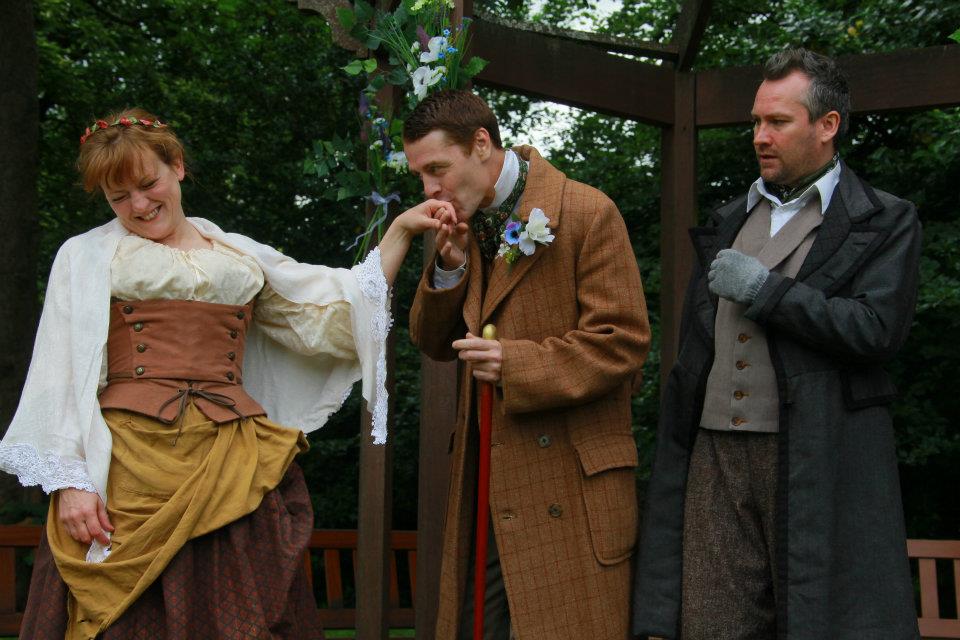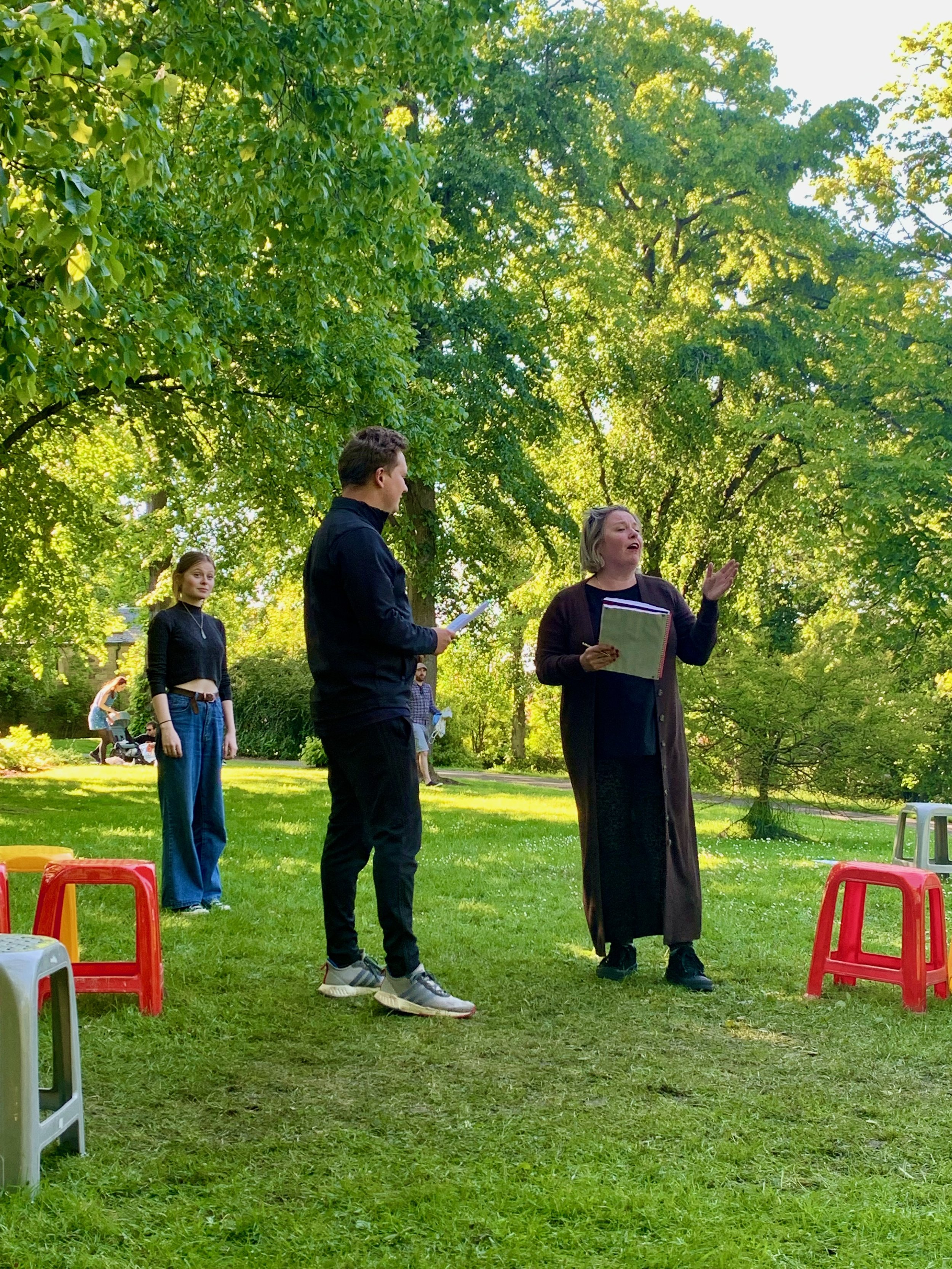Meet the Company - Actor, James Ronan
/What We Have Been / What We May Be Time to speak to James Ronan, who made his Bard debut in 2013 as Cassio in Othello and a brilliant Benedick in Much Ado About Nothing.
1. When, where and what was your first encounter with Bard in the Botanics?
My first encounter was in the library at school where they left newspapers and I remember reading a review.....i think it may have been for Othello....not 100% sure and I just remembered the name it stuck in my head somehow....and then I ended up working for Bard on another production of Othello! I may of course be wrong, it could have been a different show entirely but it sounds a bit poetic so left's not delve into the facts too much!
2. Who would you describe as an unsung hero of Bard in the Botanics?
Carys Hobbs!!!! Carys is like a one woman army! She takes over the library in the Botanics and either makes from scratch or sources all the costumes for everything! On Much Ado she had soooo much to do and just got on with it, without ever seeming to flag or get grumpy and produced amazing results. She has strong ideas but is open to your suggestions (something which runs through all the core team at Bard) so it's the best way of working really. Everyone brings so much to the table but is open to the thoughts and input of others so everyone is invested and gets along!
3. Which individual performance by an actor has made a particularly lasting impression on you (it might be one that you saw, worked with or was in a production you were involved with)?
God it's very hard to say - I was surrounded by wonderful actors from the moment I got there. It was lovely seeing someone like George Docherty investing 3 different characters with finesse and minimum of fuss, Kirk Bage really rise to a part of the great complexity of Iago, Louise McCarthy and Jen Dick being incredibly bold and brave in very different ways and of course Nicole Cooper breaking every heart in the audience every night. What I really wish is that I had seen other performances in Julius Caesar as there were these wonderful actors I'd heard about but never had the opportunity to see! Also it was lovely to work with some of the younger actors on placements and seeing them grow over the course of the run and rehearsal period, some stars in the making!
4. Of your own work, what is the most fulfilling production you’ve been a part of?
For me I loved doing Much Ado - it's a play filled with love and contradiction and moments of momentous choice. Also the production managed to take the play and plug it directly into a feeling of the here and now which was special and really helped it to engage with the audience on a visceral level it mightn't otherwise have had. I still have nightmares about the performances where I was sub-par but it is definitely the most wonderful experience I have had playing a part, I have been better but I have never cared more about what I was doing.
5. Which Bard in the Botanics production or performance did you miss that you wish you’d seen?
Ah already answered that one! Julius Caesar - it was such a shame to have missed seeing Tim and Paul at work and Jen as a director! But it meant we didn’t miss a show of Much Ado which would have made me feel much worse so I guess I cant complain!
6. Which costume (of yours or someone else’s) would you most like to have worn or is simply your favourite?
Jen's costume as the Duck-face (sorry Duchess was pretty great!) and I quite liked the Military dress uniform I got to wear at the end of Much Ado, but nothing beats wearing a Beavis and Butthead tshirt in a 400 yr old play and getting away with it - well done Carys again!
7. What is your favourite spot in the Botanics Gardens, known or unknown?
Well Centre stage of course!!!! There are many but I'll keep those private - anywhere where you can listen or observe unknown I guess....which makes me sound a little creepyt!!! but I mean it in the sense that there's something magical about being in a play and waiting to come on and watching the action and watching the audience watch it....any place like that is always great.
8. Bard in the Botanics has staged 24 of Shakespeare’s plays. Which of the titles we haven’t yet produced are you most excited about being staged?
Coriolanus, Love’s Labours Lost, King John, Richard II are the ones that stand out for me filled to the brim with wonderful language! But I also want to see Gordon do Merry Wives - I think it will be brilliant when he does!















